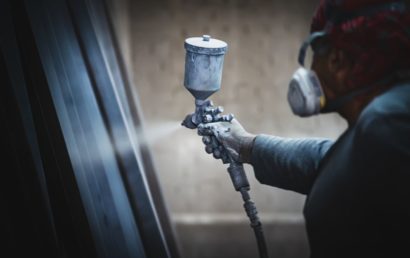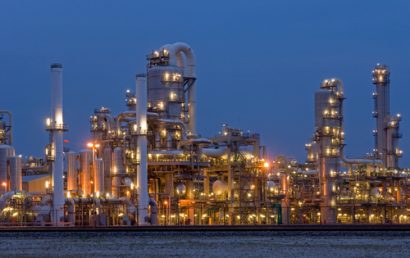How Are Marine Thermal Spray Coatings Corrosion-Resistant?
Ships and boats serve under circumstances that are less than desirable. Due to the influence and role of harsh climate environments and complex ocean medium, they are constantly faced with severe corrosion issues. Marine thermal spray coatings can help resist those issues.
Why are corrosion affects so detrimental to marine vessels? The following can happen as a result of the effects of corrosion:
- Decreased (or failed) instrument sensitivity
- Sonar can be interfered with
- Noise can be increased
- Maneuvering performance may deteriorate
- Decreased propeller propulsion efficiency
- Decreased ship structure strength
Can anyone say that they want to be on a cruise or cargo ship with these issues?
Today’s Anti-Corrosive Coatings
The above listed issues reduce a ship’s navigation rate and shorten the ship’s service life. Additional undesirable effects of corrosion are that fuel consumption and resistance are significantly increased. The cost of the application of high-performance anti-corrosion coating is cost-effective because, in the long run, it costs less than the repair, maintenance, and repainting needed when corrosion occurs. What’s more, the service life of numerous metal materials used in a marine application can be extended. The following four aspects of organic coatings used for an anti-corrosion effect come into play every day in a marine environment.
Sacrificial Anode Cathodic Protection
When used in a corrosion resistant coating, zinc powders and other active metallic powders are capable of protecting the cathode metal matrix by acting as sacrificial anodes.
Filler Corrosion Inhibition
In the presence of water, the process of metal corrosion can be inhibited when paint releases corrosion ions courtesy of anti-rust pigments.
Wet Adhesion
Playing an important role in corrosion prevention is the wet adhesion between a steel surface and the coating. Adhesion in the presence of water is what is referred to by the term “wet adhesion”. This adhesion ensures that, on the metal surface, oxygen and water cannot rapidly diffuse. In this way, metal corrosion is slowed down. The protective effect of organic coating is shielding because it’s permeation and oxygen rate is higher than that of steel and iron corrosion.
Shielding Effect
Applied to a metal surface is an organic coating used for a shielding effect. This slows or prevents metal electrochemical corrosion because the metal interface cannot be directly contacted by electrolytes (chlorine, oxygen, water, etc.). The shielding effectiveness is closely related to both the thickness of organic coatings and the anti-electrolyte permeability of organic coatings.
How Do Corrosion Inhibitors Function?
On metal, a coating is formed that prevents corrosive substance access to the metal surface. To form an adherent, thin layer, the inhibitor molecules either react with the surface or attach to the metal. This is the whole idea behind anti-corrosion protective coatings and why they are so relevant in the marine and shipping industries.
A&A Coatings offers marine thermal spray coatings to protect against the harsh environment faced by marine vessels, permanent marine structures, and temporary marine structures. We have coatings to suit every industry and need. With numerous application methods, we can apply the appropriate coating to your business’s parts, machinery, vessels, and other surfaces. If you’d like to find out how today’s thermal spray coatings can help you achieve less downtime and decreased part replacement and maintenance costs, contact us today.



